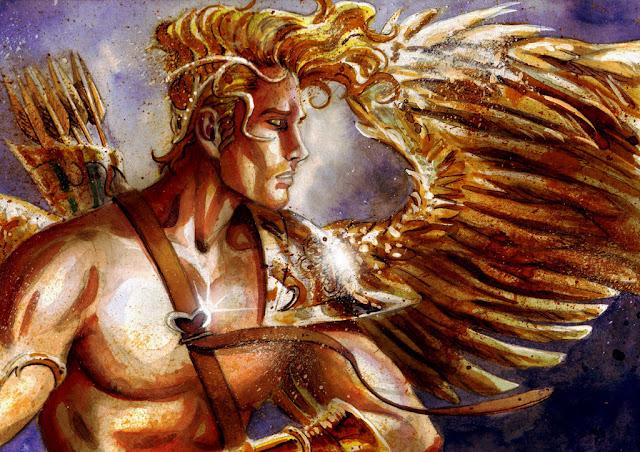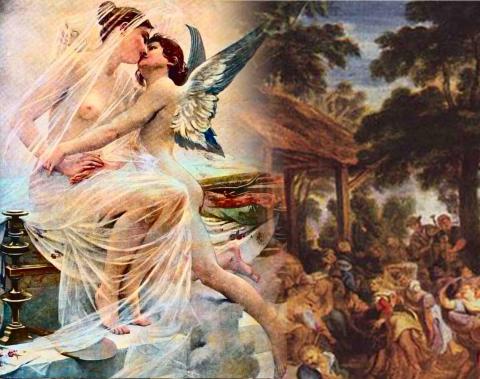SOME argue that Eros, hatched from the world-egg, was the first of the gods since, without him, none of the rest could have been born; they make him contemporary with Mother Earth and Tartarus, and deny he had any father or mother, unless it were Eileithyia, Goddess Childbirth.
b. Others hold that he was Aphrodite's son by Hermes, or by Ares or by her own father, Zeus; or the son of Iris by the West Wind. Eros was a wild boy, who showed no respect for age or position, but flied about on golden wings, shooting barbed arrows at random or wantonly setting hearts on fire with his dreadful torches.
1. Eros ('sexual passion') was a mere abstraction to Hesiod. The early Greeks pictured him as a Ker, or winged 'Spite', like Old Age, Plague, in the sense that uncontrolled sexual passion could be disturbing to ordered society. Later poets, however, took a perverse pleasure in his antics and, by the time of Praxiteles, he had become sentimentalized as beautiful youth. His most famous shrine was at Thespiae, where the Boeotians worshipped him as a simple phallic pillar - the pastoral Hermes or Priapus, under a different name. The various accounts his parentage are self-explanatory. Hermes was a phallic god; and Ares as a god of war, increased desire in the warriors' womenfolk. That Aphrodite was Eros's mother and Zeus his father is a hint that sexual passion does not stop short at incest; his birth from the Rainbow and the West Wind is a lyrical fancy. Eileithyia, 'she who comes to the aid of women in childbed', was a title of Artemis; the meaning being that there is no love so strong as mother-love.
2. Eros was never considered a sufficiently responsible god to figure among the ruling Olympian family of Twelve.


Comments
Post a Comment